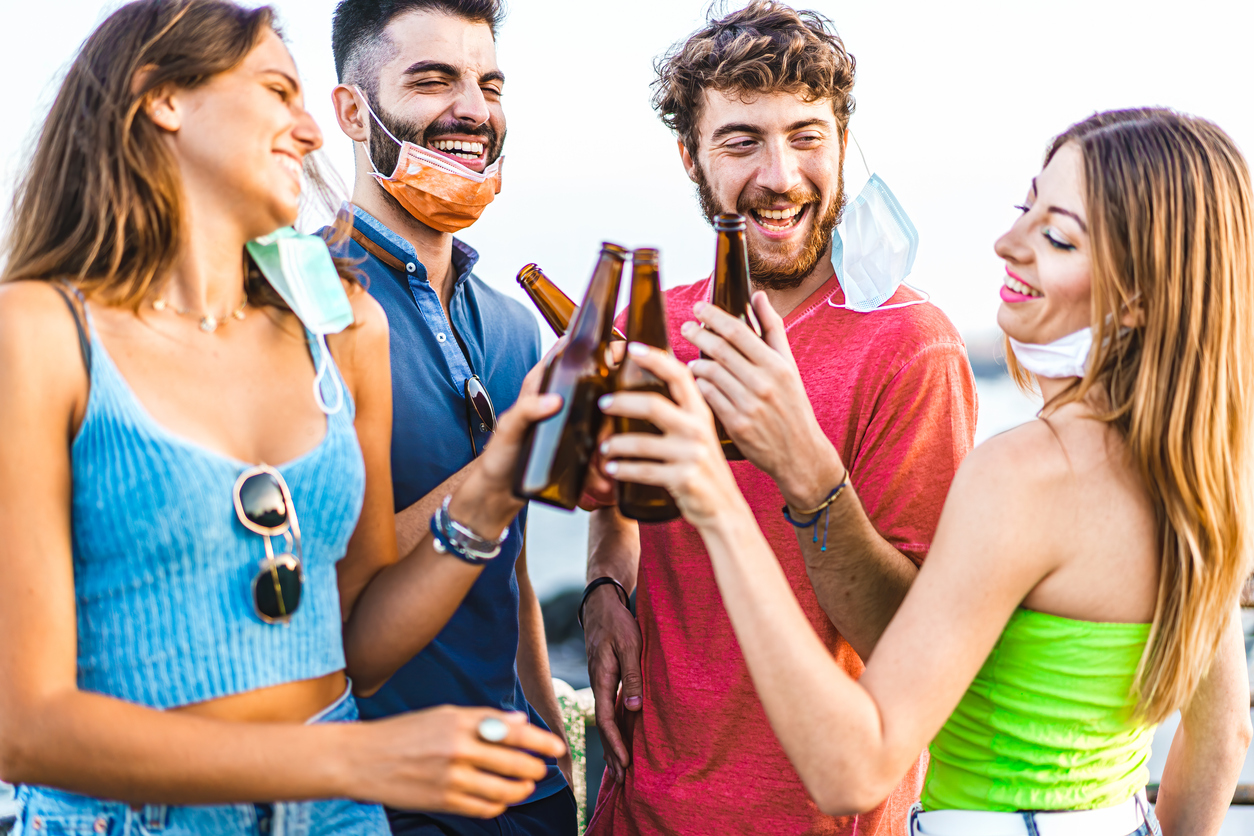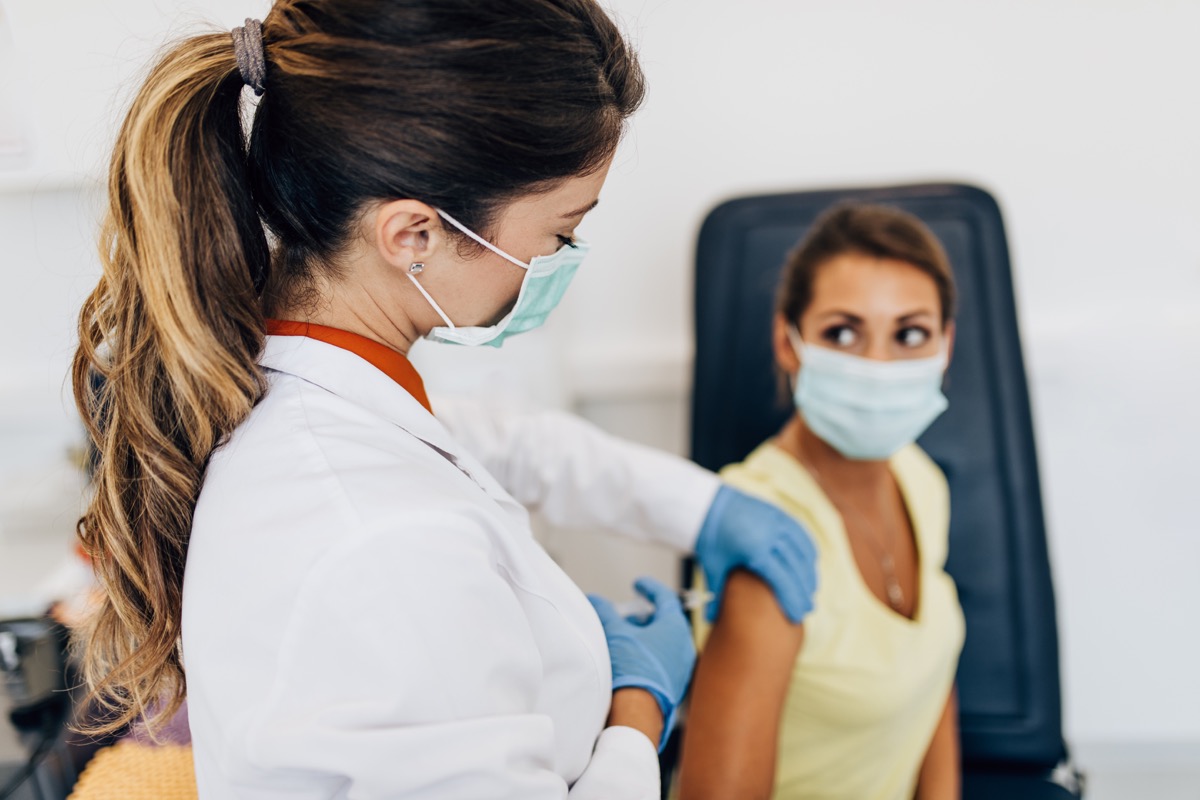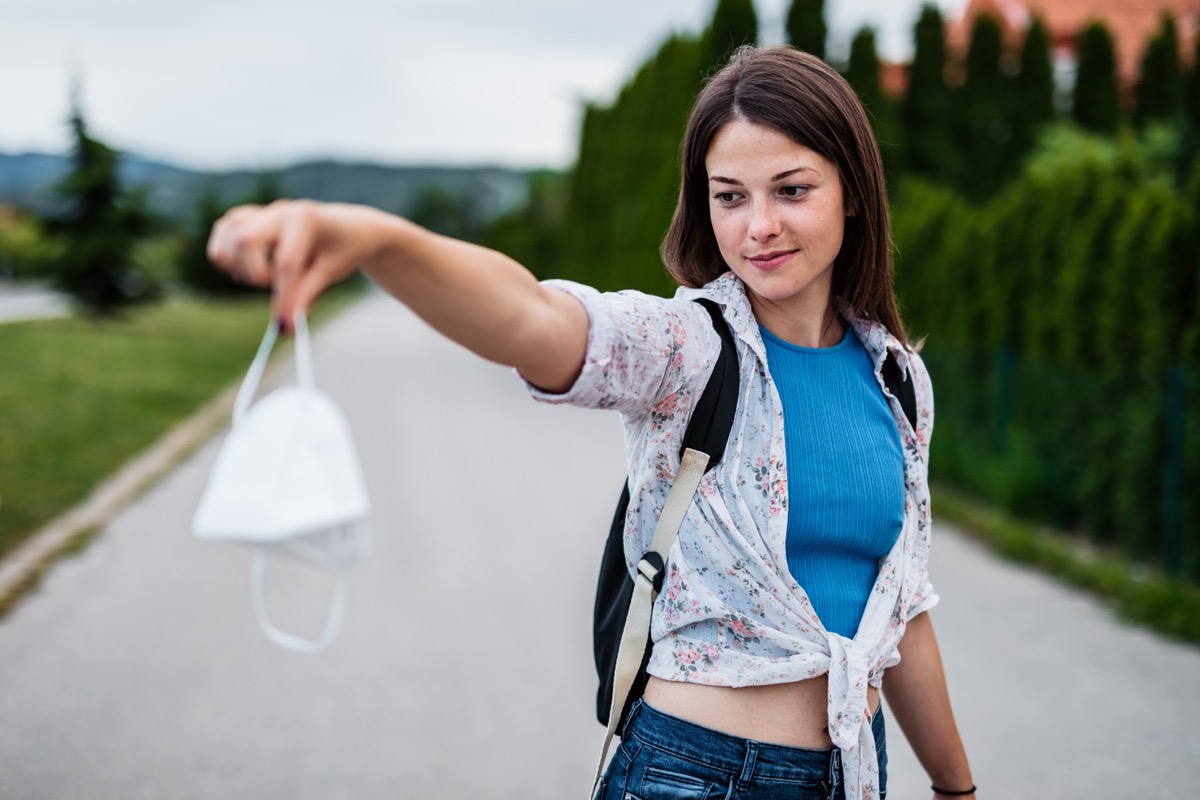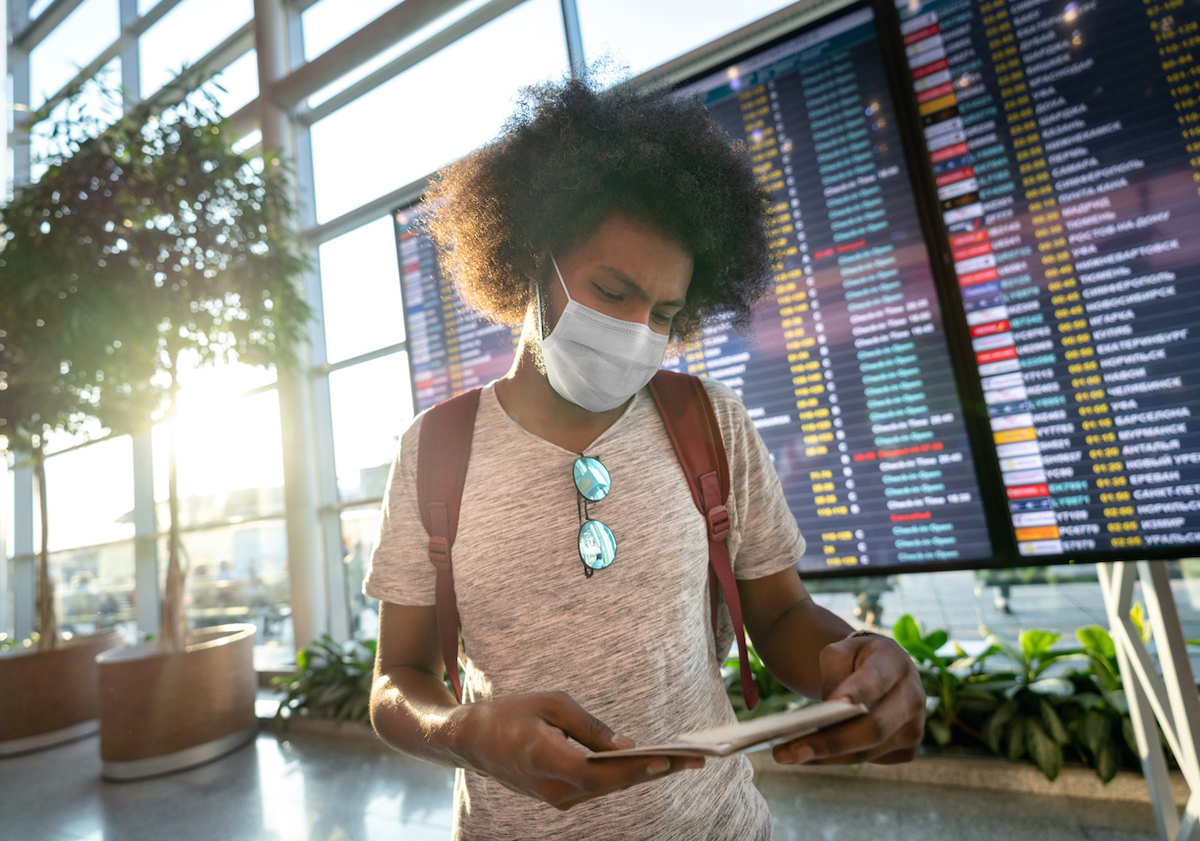During a Jan. 27 virtual town hall hosted by CNN’s Anderson Cooper and Sanjay Gupta, MD, Fauci responded to a viewer-submitted question about how soon it would be before family members could safely visit one another after being immunized. He emphasized that “getting vaccinated does not mean now you have a free pass to travel, nor does it say you have a free pass to put aside all the public health measures that we talk about all of the time.” And for more vaccine news to know, find out why If You’re Over 65, You Shouldn’t Get This New Vaccine, Experts Warn. Fauci went on to explain that COVID mRNA vaccines don’t immediately confer full protection against COVID to those who’ve received them. “You can get some degree of protection 10 days after the first dose, but you can’t rely on that,” Fauci said. “The maximum immunity begins about 10 days and beyond following the second dose. That goes for anyone, regardless of whether you want to travel or not.” But even though everyone being fully vaccinated “would give you as a group about a 94 to 95 percent efficacy,” he still advises against hitting the road right now. “The situation does not change: it is not a good idea to travel, period.” And for more on what you can expect after your inoculation, Dr. Fauci Says He Had These Side Effects From His Second Vaccine Dose. Fauci went on to explain he wasn’t solely cautioning against boarding planes: it’s also still important for vaccinated individuals to follow all other everyday precautions recommended by the U.S. Centers for Disease Control and Prevention (CDC). “We don’t want people to think that because they got vaccinated that other public health recommendations just don’t apply,” he said. “One of the biggest things that are not well understood is: ‘Why should I even have to wear a mask [after getting vaccinated]?’“ae0fcc31ae342fd3a1346ebb1f342fcb Fauci explained that there is not yet any conclusive data on whether or not those who have been vaccinated could still pass COVID along to others. “You could conceivably get infected, get no symptoms, and still have virus in your nasal pharynx, which means that you would have to wear a mask to prevent you from infecting someone else, as well as the other side of the coin, where you might not be totally protected yourself,” he said. And for more regular COVID updates, sign up for our daily newsletter. The advice not to travel is being echoed outside the medical community, as well. This week, the U.S. State Department urged American citizens not to take trips abroad as new testing requirements for passengers arriving into the U.S. by air are coming into effect. The new guidelines require international travelers to provide a negative test result from within three days of their flight. According to President Joe Biden’s administration, this is an effort slow the spread of COVID-19 and the highly contagious variants that have developed in countries including the U.K., Brazil, and South Africa. “The Department of State is committed to helping U.S. citizens overseas who find themselves in dire situations, but that assistance is likely to be limited,” Ian Brownlee, Bureau of Consular Affairs Acting Assistant Secretary at the U.S. State Department, said during a Jan. 26 press briefing. “Our main message to U.S. citizens considering travel abroad remains the same: Seriously reconsider going overseas right now. If you’re overseas right now, it’s going to be harder to come home for a while. So be informed and be prepared.” And for more on where things are looking the worst in the States, find out How Bad the COVID Outbreak Is in Your State.



